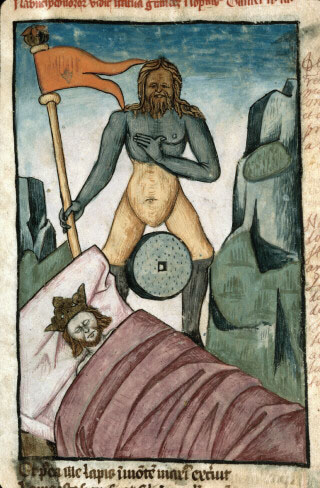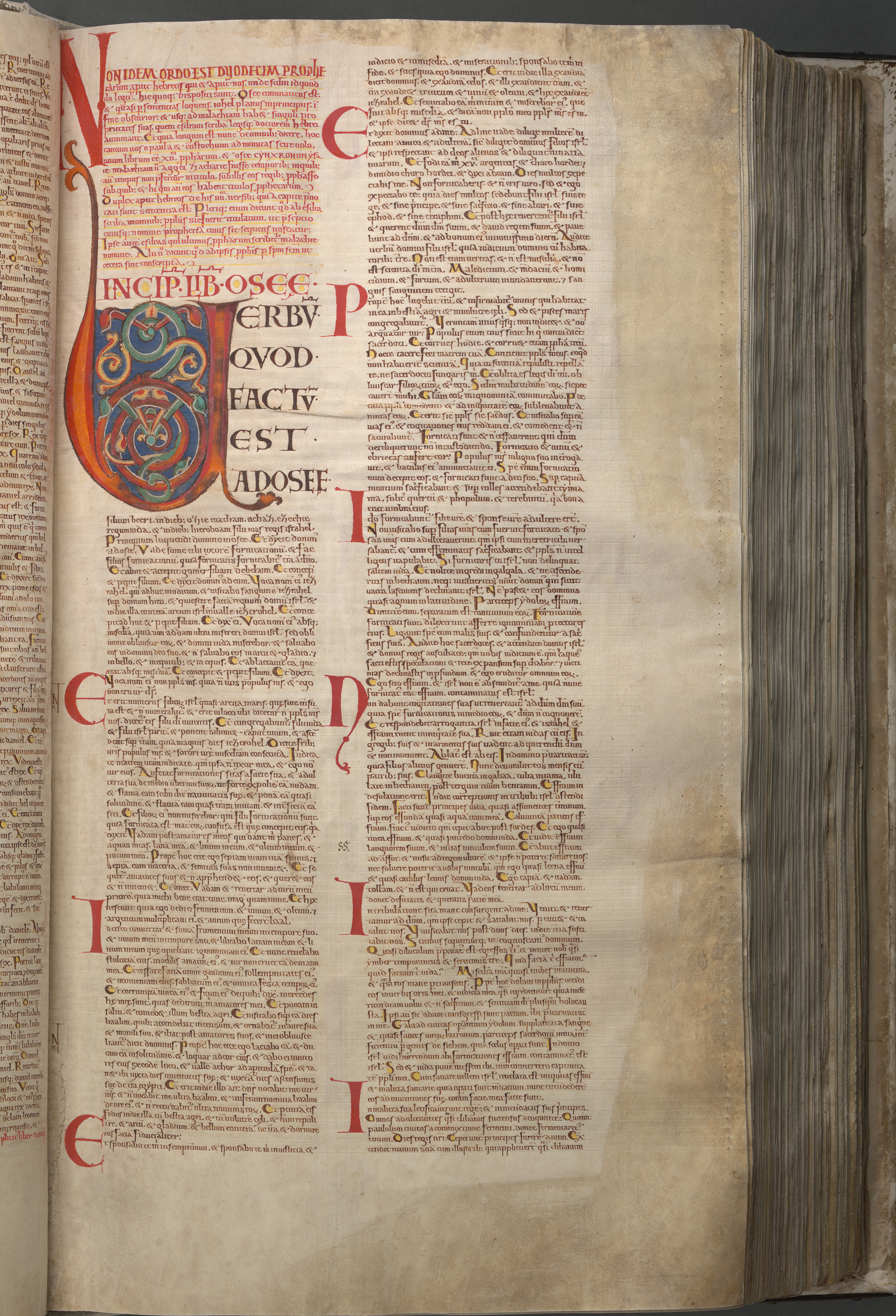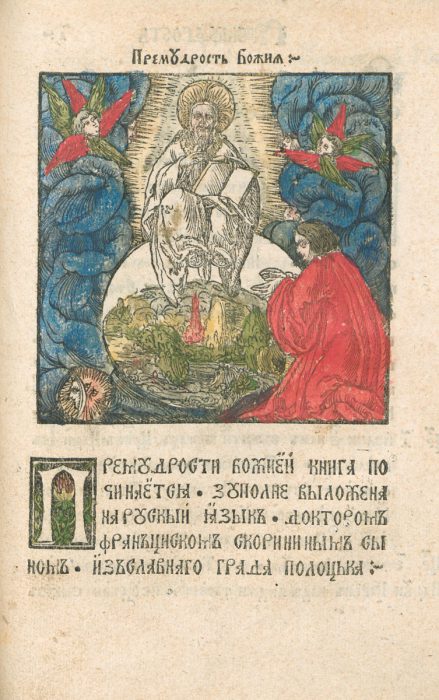|
Melito's Canon
Melito's canon is the biblical canon attributed to Melito of Sardis, one of the early Church Fathers of the 2nd century. Earliest Christian canon of the Old Testament Melito provides what is possibly the earliest known Christian canon of what he termed the " Old Testament", having traveled to Palestine (probably to the library at Caesarea Maritima) seeking to acquire accurate information about which books should be accepted as canonical. Other candidates for earliest Christian canon include the Bryennios List and the Muratorian fragment. Eusebius' record of Melito Melito's canon is found in Eusebius EH4.26.13–14: Fathers New Advent. Canon features Melito's list almost fully corresponds to the Jewish |
Biblical Canon
A biblical canon is a set of texts (also called "books") which a particular Jewish or Christian religious community regards as part of the Bible. The English word ''canon'' comes from the Greek , meaning " rule" or "measuring stick". The use of the word "canon" to refer to a set of religious scriptures was first used by David Ruhnken, in the 18th century. Various biblical canons have developed through debate and agreement on the part of the religious authorities of their respective faiths and denominations. Some books, such as the Jewish–Christian gospels, have been excluded from various canons altogether, but many disputed books are considered to be biblical apocrypha or deuterocanonical by many, while some denominations may consider them fully canonical. Differences exist between the Hebrew Bible and Christian biblical canons, although the majority of manuscripts are shared in common. Different religious groups include different books in their biblical canons, in varying ... [...More Info...] [...Related Items...] OR: [Wikipedia] [Google] [Baidu] |
Book Of Ruth
The Book of Ruth ( he, מגילת רות, ''Megilath Ruth'', "the Scroll of Ruth", one of the Five Megillot) is included in the third division, or the Writings (Ketuvim), of the Hebrew Bible. In most Christian canons it is treated as one of the historical books and placed between Judges and 1 Samuel. The book, written in Hebrew in the 6th–4th centuries BCE, tells of the Moabite woman Ruth, who accepts Yahweh, the God of the Israelites, as her God and accepts the Israelite people as her own. In Ruth 1:16–17, Ruth tells Naomi, her Israelite mother-in-law, "Where you go I will go, and where you stay I will stay. Your people will be my people and your God my God. Where you die I will die, and there I will be buried. May the Lord deal with me, be it ever so severely, if even death separates you and me." The book is held in esteem by Jews who fall under the category of Jews-by-choice, as is evidenced by the considerable presence of Boaz in rabbinic literature. The Book of Rut ... [...More Info...] [...Related Items...] OR: [Wikipedia] [Google] [Baidu] |
Book Of Daniel
The Book of Daniel is a 2nd-century BC biblical apocalypse with a 6th century BC setting. Ostensibly "an account of the activities and visions of Daniel, a noble Jew exiled at Babylon", it combines a prophecy of history with an eschatology (a portrayal of end times) both cosmic in scope and political in focus, and its message is that just as the God of Israel saves Daniel from his enemies, so he would save all Israel in their present oppression. The Hebrew Bible includes Daniel in the ''Ketuvim'' (writings), while Christian biblical canons group the work with the Major Prophets. It divides into two parts: a set of six court tales in chapters 1–6, written mostly in Aramaic, and four apocalyptic visions in chapters 7–12, written mostly in Hebrew; the deuterocanonical books contain three additional sections, the Prayer of Azariah and Song of the Three Holy Children, Susanna, and Bel and the Dragon. The book's influence has resonated through later ages, from the community of ... [...More Info...] [...Related Items...] OR: [Wikipedia] [Google] [Baidu] |
Minor Prophet
The Minor Prophets or Twelve Prophets ( he, שנים עשר, ''Shneim Asar''; arc, תרי עשר, ''Trei Asar'', "Twelve") ( grc, δωδεκαπρόφητον, "the Twelve Prophets"), occasionally Book of the Twelve, is a collection of prophetic books, written between about the 8th and 4th centuries BC, which are in both the Jewish Tanakh and Christian Old Testament. In the Tanakh, they appear as a single book, (''"The Twelve"''), which is the last book of the Nevi'im, the second of three major divisions of the Tanakh. In the Christian Old Testament, the collection appears as twelve individual books, one for each of the prophets: the Book of Hosea, Joel, Amos, Obadiah, Jonah, Micah, Nahum, Habakkuk, Zephaniah, Haggai, Zechariah, and Malachi. Their order, and position in the Old Testament, varies slightly between the Protestant, Catholic Bible, Catholic and Eastern-Greek Orthodox Bible, Eastern Orthodox Bibles. The name "Minor Prophets" goes back apparently to St. Augustine, w ... [...More Info...] [...Related Items...] OR: [Wikipedia] [Google] [Baidu] |
Book Of Jeremiah
The Book of Jeremiah ( he, ספר יִרְמְיָהוּ) is the second of the Latter Prophets in the Hebrew Bible, and the second of the Prophets in the Christian Old Testament. The superscription at chapter Jeremiah 1:1–3 identifies the book as "the words of Jeremiah son of Hilkiah". Of all the prophets, Jeremiah comes through most clearly as a person, ruminating to his scribe Baruch about his role as a servant of God with little good news for his audience. His book is intended as a message to the Jews in exile in Babylon, explaining the disaster of exile as God's response to Israel's pagan worship: the people, says Jeremiah, are like an unfaithful wife and rebellious children, their infidelity and rebelliousness made judgment inevitable, although restoration and a new covenant are foreshadowed. Authentic oracles of Jeremiah are probably to be found in the poetic sections of chapters 1 –25, but the book as a whole has been heavily edited and added to by the prophet's f ... [...More Info...] [...Related Items...] OR: [Wikipedia] [Google] [Baidu] |
Book Of Isaiah
The Book of Isaiah ( he, ספר ישעיהו, ) is the first of the Latter Prophets in the Hebrew Bible and the first of the Major Prophets in the Christian Old Testament. It is identified by a superscription as the words of the 8th-century BCE prophet Isaiah ben Amoz, but there is extensive evidence that much of it was composed during the Babylonian captivity and later. Johann Christoph Döderlein suggested in 1775 that the book contained the works of two prophets separated by more than a century, and Bernhard Duhm originated the view, held as a consensus through most of the 20th century, that the book comprises three separate collections of oracles: Proto-Isaiah ( chapters 1– 39), containing the words of the 8th-century BCE prophet Isaiah; Deutero-Isaiah ( chapters 40– 55), the work of an anonymous 6th-century BCE author writing during the Exile; and Trito-Isaiah ( chapters 56– 66), composed after the return from Exile. Isaiah 1– 33 promises judgment and restoration f ... [...More Info...] [...Related Items...] OR: [Wikipedia] [Google] [Baidu] |
Book Of Job
The Book of Job (; hbo, אִיּוֹב, ʾIyyōḇ), or simply Job, is a book found in the Ketuvim ("Writings") section of the Hebrew Bible (Tanakh), and is the first of the Poetic Books in the Old Testament of the Christian Bible. Scholars are generally agreed that it was written between the 7th and 4th centuries BCE. It addresses theodicy, why God permits evil in the world, through the experiences of the eponymous protagonist. Job is a wealthy and God-fearing man with a comfortable life and a large family; God, having asked Satan ( hbo, הַשָּׂטָן, haśśāṭān, , label=none) for his opinion of Job's piety, decides to take away Job's wealth, family and material comforts, following Satan's accusation that if Job were rendered penniless and without his family, he would turn away from God. Structure The Book of Job consists of a prose prologue and epilogue narrative framing poetic dialogues and monologues. It is common to view the narrative frame as the original core ... [...More Info...] [...Related Items...] OR: [Wikipedia] [Google] [Baidu] |
Ecclesiastes
Ecclesiastes (; hbo, קֹהֶלֶת, Qōheleṯ, grc, Ἐκκλησιαστής, Ekklēsiastēs) is one of the Ketuvim ("Writings") of the Hebrew Bible and part of the Wisdom literature of the Christian Old Testament. The title commonly used in English is a Latin transliteration of the Greek translation of the Hebrew word ( or ). An unnamed author introduces "The words of Kohelet, son of David, king in Jerusalem" ( 1:1) and does not use his own voice again until the final verses (12:9–14), where he gives his own thoughts and summarises the statements of Kohelet; the main body of the text is ascribed to Kohelet himself. Kohelet proclaims (1:2) "Vanity of vanities! All is futile!"; the Hebrew word , "vapor", can figuratively mean "insubstantial", "vain", "futile", or "meaningless". Given this, the next verse presents the basic existential question with which the rest of the book is concerned: "What profit hath a man for all his toil, in which he toils under the sun?", expre ... [...More Info...] [...Related Items...] OR: [Wikipedia] [Google] [Baidu] |
Book Of Wisdom
The Book of Wisdom, or the Wisdom of Solomon, is a Jewish work written in Greek and most likely composed in Alexandria, Egypt. Generally dated to the mid-first century BCE, the central theme of the work is "wisdom" itself, appearing under two principal aspects. The first aspect is, in its relation to humankind, wisdom is the perfection of knowledge of the righteous as a gift from God showing itself in action. The second aspect is, in direct relation to God, wisdom is with God from all eternity. It is one of the seven Sapiential or wisdom books in the Septuagint, the others being Psalms, Proverbs, Ecclesiastes, Song of Songs (Song of Solomon), Job, and Sirach. It is included in the canons of the Catholic Church and the Eastern Orthodox Church. Most Protestants consider it part of the Apocrypha. Structure, genre and content The structure can be divided into three sections: # Book of Eschatology #* exhortation to justice #* speech of the impious, contrasts of the wicked and the j ... [...More Info...] [...Related Items...] OR: [Wikipedia] [Google] [Baidu] |
Book Of Proverbs
The Book of Proverbs ( he, מִשְלֵי, , "Proverbs (of Solomon)") is a book in the third section (called Ketuvim) of the Hebrew Bible and a book of the Christian Old Testament. When translated into Greek and Latin, the title took on different forms: in the Greek Septuagint (LXX) it became (, "Proverbs"); in the Latin Vulgate the title was , from which the English name is derived. Proverbs is not merely an anthology but a "collection of collections" relating to a pattern of life which lasted for more than a millennium. It is an example of the biblical wisdom literature, and raises questions of values, moral behaviour, the meaning of human life, and right conduct, and its theological foundation is that "the fear of God (meaning submission to the will of God) is the beginning of wisdom". Wisdom is praised for her role in creation; God acquired her before all else, and through her he gave order to chaos; and since humans have life and prosperity by conforming to the order of cre ... [...More Info...] [...Related Items...] OR: [Wikipedia] [Google] [Baidu] |
Psalms
The Book of Psalms ( or ; he, תְּהִלִּים, , lit. "praises"), also known as the Psalms, or the Psalter, is the first book of the ("Writings"), the third section of the Tanakh, and a book of the Old Testament. The title is derived from the Greek translation, (), meaning "instrumental music" and, by extension, "the words accompanying the music". The book is an anthology of individual Hebrew religious hymns, with 150 in the Jewish and Western Christian tradition and more in the Eastern Christian churches. Many are linked to the name of David, but modern mainstream scholarship rejects his authorship, instead attributing the composition of the psalms to various authors writing between the 9th and 5th centuries BC. In the Quran, the Arabic word ‘Zabur’ is used for the Psalms of David in the Hebrew Bible. Structure Benedictions The Book of Psalms is divided into five sections, each closing with a doxology (i.e., a benediction). These divisions were probably intro ... [...More Info...] [...Related Items...] OR: [Wikipedia] [Google] [Baidu] |








